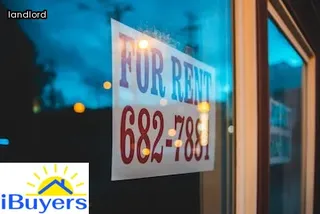In Florida, tenant abandonment is a serious issue that landlords must understand before taking action. It’s important to know that the state of Florida has specific laws when it comes to dealing with tenant abandonment, so it’s crucial for landlords to be aware of these regulations and what their rights are.
As defined by Florida law, tenant abandonment occurs when a renter moves out without notifying the landlord or paying rent for an extended period of time. During this process, the landlord must make sure that the tenant’s property is returned or disposed of properly, as well as abide by all other related legal requirements.
In some cases, a landlord can even file an eviction lawsuit if the tenant does not respond to any notices sent. Understanding how to handle tenant abandonment in Florida is essential for any landlord who wants to protect their interests and ensure they comply with all applicable laws.

In the state of Florida, property abandonment is defined as when a tenant vacates their rented premises and fails to pay rent or notify their landlord. This means that the tenant has left without following the terms of the lease agreement, and has not returned to reclaim any personal belongings or pay remaining payments.
The legal definition of property abandonment in Florida is based on the idea that if a tenant remains absent from their rental unit for an extended period of time without making arrangements with their landlord or paying rent, then they have legally abandoned the property. In order for a landlord to file for an eviction, they must prove that this concept applies to their situation.
Landlords must also be aware that in some cases, tenants may leave behind some personal items which could prevent them from being able to claim abandonment.
When a tenant abandons a rental property in Florida, the landlord is entitled to certain rights that must be exercised to protect their interests. Once abandonment is confirmed, landlords have the legal authority to enter and re-take possession of the premises, as well as take steps to mitigate any damages left behind by the tenant.
Landlords are also legally obligated to take reasonable efforts to attempt to recover unpaid rent or other financial losses resulting from the abandonment. Furthermore, landlords may pursue legal action against a tenant who has abandoned their rental agreement before fulfilling its obligations.
It is important for landlords in Florida to understand their legal rights when dealing with tenant abandonment and take proactive measures to secure their investments.

Creating an effective notice of abandoned property in Florida is a critical step for landlords dealing with tenant abandonment. The document should be crafted carefully, as state laws require specific language and details to be included.
Landlords must include the date of possession, the name and address of the tenant, an inventory of all items left behind, and a statement that the landlord may dispose or store any personal property left behind. Additionally, it's important to note that a public posting of the notice is required before an eviction can occur.
Furthermore, landlords should ensure they are providing tenants with ample time to reclaim their possessions - typically fifteen days - while also ensuring they are following all local regulations when it comes to times and places for postings. Finally, landlords should keep copies of all notices given in order to protect their rights in court should legal action be necessary.
When tenants leave a rental property in Florida without taking their belongings, landlords must take the appropriate steps to protect their rights as property owners. First, it is important to review the rental agreement and determine whether any of the tenant's items are considered abandoned.
In most cases, if they do not respond to communication attempts within 30 days after vacating the premises, then their possessions are considered abandoned. Landlords should then carefully document all of the items that have been left behind in order to ensure accuracy and provide evidence should there be any dispute.
Additionally, landlords may need to contact local law enforcement to report any property that appears illegally obtained or hazardous material. After thoroughly documenting the property and gaining permission from local authorities, landlords can then decide whether they would like to keep or dispose of the items left behind by former tenants.
If landlords opt to keep these items for themselves, they must follow the laws set forth by Florida's self-help eviction statutes. By following these guidelines and safeguarding their rights as property owners, landlords can properly handle tenant abandonment in Florida without unnecessary stress or legal repercussions.

In Florida, laws governing tenant abandoned property can be complex. It is essential for landlords to understand the relevant statutes and regulations regarding abandonment of a rental unit in order to ensure they are properly addressing any issues that may arise.
For instance, Chapter 83 of the Florida Statutes covers landlord-tenant rights and responsibilities, including abandonment. Additionally, the law stipulates that if a tenant abandons personal property in the rental unit, landlords must provide them with written notification and store it for a certain period of time before disposing of it.
Landlords must also adhere to specific procedures when it comes to selling or auctioning off abandoned goods. Furthermore, if a tenant fails to respond to notice within the allotted timeframe, all applicable fees and costs associated with storing and disposing of their property become due from them.
Knowing these laws can significantly reduce legal complications down the line for landlords dealing with tenant abandonment in Florida.
When a tenant abandons their rental property in Florida, landlords are required to take certain steps to ensure that the abandoned property is managed correctly. This includes making sure that any remaining items left behind by the tenant are taken care of properly.
In order to do this, landlords should document all items left in the property and store them securely, as well as contact the tenant (or their designated representative) with information on how they can retrieve the belongings if desired. Landlords must also be aware of any legal requirements for disposing of any unclaimed or unwanted items - such as donating them or auctioning them off - and should keep detailed records throughout this entire process for compliance purposes.
Additionally, it's important for landlords to secure the property against further damage or theft and make sure that no unauthorized people are allowed inside until the unit is re-rented. Following these steps carefully is key to ensuring that landlords maintain control over their rental properties and protect themselves from potential liability issues when dealing with tenant abandonment in Florida.

In order to properly document evidence of tenant abandonment in Florida, landlords should first take pictures of any visible damages or missing belongings that could indicate an abandoned property. Additionally, they should make copies of all documents related to the tenancy such as a rental agreement or lease and any past due notices that have been sent to the tenant.
If applicable, they should also copy the tenant’s security deposit form and any other pertinent paperwork. Landlords should also take note of any mail addressed to the tenant that has been returned as undeliverable, as this could serve as evidence of abandonment.
Finally, if other tenants in the building have seen the renter leave without notice, it is important for landlords to record their statements as well. It is important for landlords to keep these records in a safe place in case they need them for future legal proceedings.
Dealing with tenant abandonment in Florida can be a daunting task for landlords. When tenants vacate their rental unit, they often leave behind personal belongings that the landlord must now take care of.
To ensure the process is handled efficiently and legally, there are certain best practices that landlords should know when dealing with a tenant's possessions after they have vacated their unit. First, it is important to secure the unit immediately after being notified of the tenant's abandonment or vacancy; this will prevent any unauthorized persons from entering and taking possession of the tenant's items.
The landlord should also assess the value of the items left behind and determine if they are worth storing or disposing of. If deemed valuable, it is recommended to store all items in a safe, dry place on the property; if not, then proper disposal procedures should be followed to discard them lawfully.
In addition, Florida law states that landlords are required to send a written notice to tenants who have abandoned their rental units informing them of their property’s whereabouts and giving them 30 days to reclaim it before disposing of it; failure to do so can result in legal action taken against the landlord. Following these best practices will help ensure that landlords deal with tenant abandonment effectively and legally in Florida.

Dealing with tenant abandonment in Florida can be a frustrating and complicated legal process for landlords. Having knowledgeable representation during evictions is essential to protect the landlord’s interests and ensure their rights are protected under the law.
Finding an experienced attorney who is familiar with local laws concerning tenant eviction can help provide clarity and peace of mind throughout the entire process. Researching potential attorneys, gathering necessary documentation, and preparing for court are all important steps to take to make sure the landlord is properly represented.
After selecting an attorney, it is recommended that landlords ask questions about their specific situation so that they may fully understand their case and the legal ramifications involved. In addition, landlords should make sure that any agreements made with tenants are clearly defined in writing and witnessed by a third-party.
With proper preparation and representation from a qualified attorney, landlords can successfully navigate through tenant abandonment cases in Florida while protecting their legal rights during evictions.
Eviction services can be a real lifesaver for landlords dealing with tenant abandonment in Florida. The process of evicting a tenant is often complex and time consuming, but with the right help and guidance it doesn’t have to be.
A specialized eviction service provider can provide landlords with the best advice, support, and expertise necessary to handle all phases of the eviction process quickly, efficiently, and cost-effectively. From filing paperwork to obtaining court orders and preparing for hearings, our experienced eviction professionals can guide you through each step in the process while ensuring that all laws are followed.
We also provide legal advice and representation if needed. With our help, landlords can successfully navigate their way through tenant abandonment procedures in Florida without any hassle or delays.

Landlords in Florida must deal with tenant abandonment in a very specific way. The process is detailed and can be challenging, so it's important to get comprehensive eviction representation at an affordable rate.
Finding a lawyer who knows the laws and regulations of the state is essential when dealing with tenant abandonment, as they can guide you through the process quickly and efficiently, making sure your rights are protected throughout the entire situation. An experienced attorney will ensure that all legal paperwork is submitted properly so that you don't face any additional complications down the road.
They will also advise on what course of action to take if tenants fail to pay rent or breach their lease agreement, as well as provide guidance on how long you should wait before filing for eviction. With their help, landlords can rest assured knowing that their rights are being taken into account and that they have all the necessary resources to successfully handle tenant abandonment in Florida.
For landlords in Florida, resolving tenant disputes quickly and efficiently is essential for keeping their rental properties running smoothly. Knowing how to deal with tenant abandonment can help landlords avoid legal battles and protect their investments.
Having a step-by-step guide for dealing with this issue can be invaluable. The process of resolving tenant abandonment begins by sending a notice to the tenant informing them that they need to vacate the property within a certain timeframe.
After the deadline has passed, landlords must then follow through with eviction proceedings if the tenant has not moved out. This includes filing an eviction complaint with the court and filing a summons so that the court may serve notice to the tenant.
Landlords should also take steps to ensure that their rights are protected under Florida law and make sure they are familiar with all applicable regulations regarding landlord/tenant matters. Understanding these laws can help landlords resolve disputes quickly and efficiently while protecting their investments.

The best way to protect your rental property investment is by taking proactive steps to reduce the risks associated with tenant abandonment in Florida. Landlords must develop a thorough understanding of their obligations and rights under state laws, while also staying up-to-date on the latest regulations and legislation.
In addition, landlords should take preventative measures such as conducting credit checks and reviewing references before signing a lease agreement. This can help to ensure that tenants will be reliable and financially responsible.
Furthermore, landlords should document any interactions with tenants, keep detailed records of rent payments, and regularly inspect the property to make sure it is being maintained properly. Following these steps can help minimize the risk of tenant abandonment in Florida and provide peace of mind for landlords.
When a tenant abandons a rental property in Florida, it can be difficult for landlords to know what steps to take to maximize their return on the vacated property. But with the right approach and resources, landlords can make sure they are properly dealing with tenant abandonment and making the most out of their investment.
It is essential for landlords to follow all applicable laws when dealing with an abandoned property, including having proper documentation and understanding the eviction process. Additionally, landlords should assess the condition of the unit upon abandonment, as any damage or unpaid rent must be recovered from the security deposit or through legal action.
Before renting out again, any necessary repairs should be done in order to ensure that the next tenants will have a pleasant experience. Keeping accurate records of expenses related to repairing and maintaining an abandoned rental property is also important for landlords in order to document any deductions taken at tax time.
Finally, if needed, landlords may consider hiring a professional real estate broker or management company to help them manage their rental properties more effectively and efficiently.

When dealing with tenant abandonment in Florida, landlords are often faced with the challenge of unclaimed goods from former tenants. Fortunately, there are a number of options for navigating this difficult situation.
One such option is to enlist the help of professional support during the eviction process. Working with a skilled eviction attorney can help provide landlords with legal advice and assistance regarding their case, as well as expertise in addressing other real estate matters.
Hiring an experienced attorney can give landlords peace of mind that their rights are being protected and that their case is being handled in accordance with state laws and regulations.
In Florida, a tenant is considered to have abandoned their rental property if they have failed to pay rent for at least 15 days and the landlord has made reasonable attempts to contact the tenant. The landlord must also give the tenant written notice of nonpayment of rent and provide them with an opportunity to pay or move out within three days in accordance with Florida Statute 83.
56. If these requirements are met and the tenant fails to respond, then the landlord may assume abandonment after those 15 days have passed.
It is important for landlords in Florida to be aware of this timeline so that they can take appropriate action if a tenant abandons their rental property without notice.

When a tenant abandons a rental property in Florida, landlords must follow certain steps to protect their rights and the security of their property. In the event that a tenant leaves personal belongings behind, landlords should take the following steps: First, provide written notice to the tenant informing them that they have abandoned their tenancy and all possessions on the property must be removed within fifteen (15) days.
Secondly, secure and photograph any remaining belongings for documentation purposes. Thirdly, store any items in a safe location until the legal process has been completed.
Fourthly, file an abandonment claim with the court if necessary. Finally, dispose of any remaining items according to applicable laws.
By following these steps, landlords can ensure that they are adhering to state regulations while protecting their rights as a property owner.
In Florida, abandonment of property is defined as when a tenant vacates the premises without notifying the landlord, leaving behind their personal property.
In addition to this, a tenant may be considered to have abandoned the property if they are absent for an extended period of time and have not paid rent.
Abandonment of rental property can be difficult for landlords to manage, as they must take steps to secure and protect the unit while also dealing with any remaining possessions left by the tenant.
Landlords must also ensure that they comply with state laws regarding abandoned property in order to avoid legal issues in the future.
When dealing with tenant abandonment in Florida, it is important for landlords to be aware of the legal time frame in which a tenant can leave their belongings on the property. The length of time that a tenant can leave their belongings on a landlord’s property depends on the county they are in and whether or not they have paid rent up until the date of abandonment.
Generally, most tenant abandonment laws in Florida allow tenants 30 days to remove their possessions without consequence; however, some counties provide only 10 days or less. Furthermore, if rent has been paid up until the day of abandonment, then tenants may be allowed an additional 30-day period before eviction proceedings begin.
It is important for landlords to thoroughly research the specific laws governing tenant abandonment in their county to ensure they are following all procedures correctly.